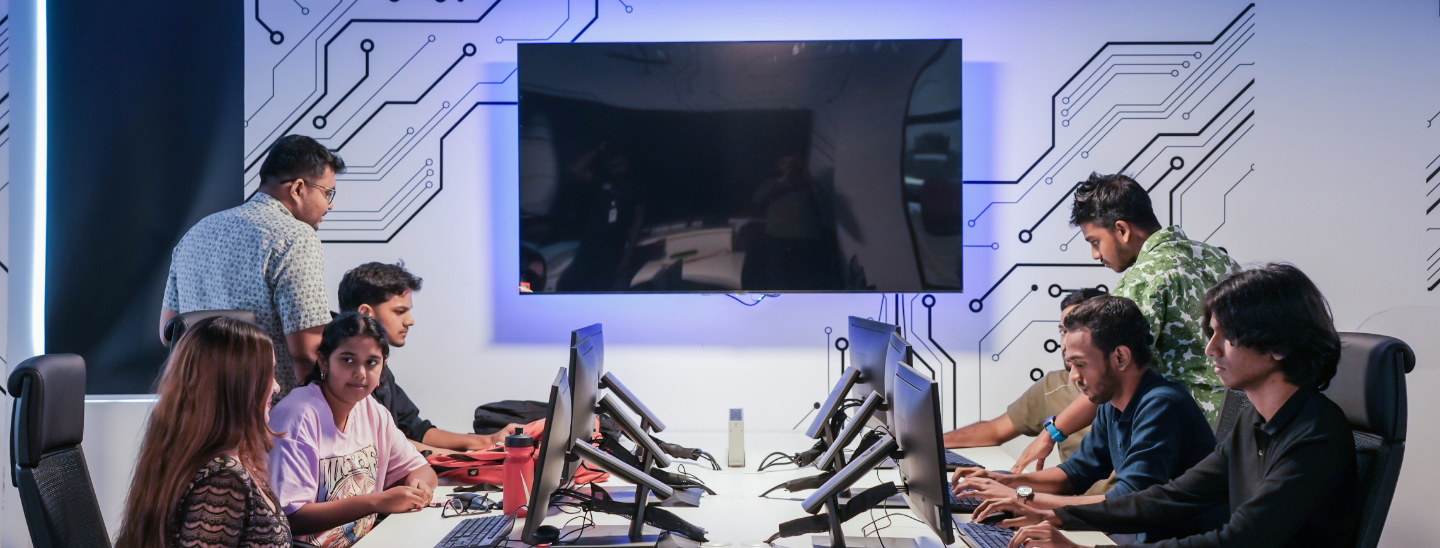
3 years
February, July & November
ECU Sri Lanka Campus
160,000
2025 Domestic Unit Price (LKR)
1,050
2025 International Unit Price (USD)
The Design industry is expanding from traditional Graphic Design, Spatial Design, and Web-Design to emerging fields such as Service Design, Human-Centred Design, and Experience Design. This shift offers new and exciting employment opportunities to design graduates. The Bachelor of Design equips students with the skills and knowledge required in contemporary design industries, while grounded in a strong foundation of traditional design skills and methodologies. Focusing on emerging design skillset and mindsets, this course delivers a comprehensive training to enable graduates to engage with the transformative and positive future of design in a range of creative and professional contexts. This course engages students in hands-on projects, collaborative exercises, and real-world simulations in social, cultural, technological and environmental challenges. Our staff members, consisting of research experts and industry leaders, will mentor students in developing a portfolio that showcases strong design abilities to prospective employers. Upon graduation, students will be equipped with the skills, knowledge, and industry connections needed to embark on a rewarding career in design. Graduates may choose to work in established design agencies, corporate sectors, innovative tech companies, government and public sectors, or even launch their own entrepreneurial venture. The Bachelor of Design program will provide them with a solid foundation to excel in the dynamicand ever-evolving world of design.
This course prepares graduates for the expanding and emerging design jobs in Design Thinking, Human-Centred Design, Experience Design (UX Design), Service Design and Design Research. These emerging design practices contribute creative thinking, empathy building and prototyping skillsets to sectors such as Public Services, Corporate, Not-For-Profit, Social, and Healthcare. In these emerging design practices, designers work to create products, systems, or environments that are functional and user-friendly, and are adept at working individually or as part of a team, collaborating with other professionals such as engineers, marketers, and project managers to bring their designs to life.
*Please note these units are subject to change and should be used as an overview. Unit availability may differ upon each intake.
Domestic students please refer to:
International students please refer to:
CRICOS Code: 115038H
Course Code: P79